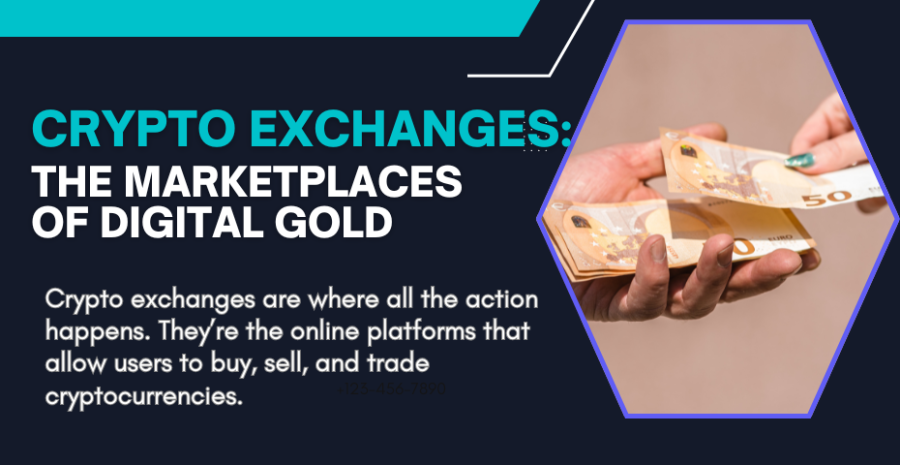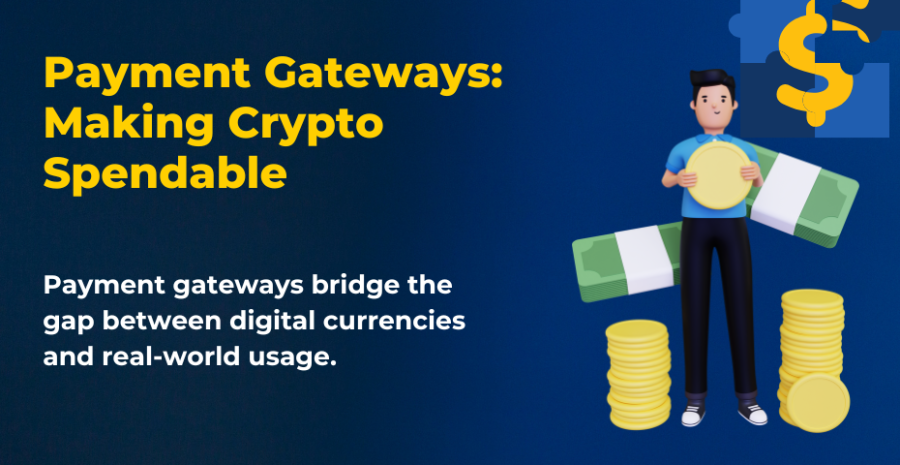
A Step-by-Step Guide to Who Does What in Crypto

Introduction
The cryptocurrency space can seem like a vast, impenetrable universe of buzzwords, technologies, and speculation. But beneath the volatility and hype lies a highly organized machine. Like any industry, crypto has its core players - each performing a unique and crucial function.
Whether you're new to the space or a seasoned investor, it’s essential to understand who’s doing what behind the scenes. Not just for curiosity’s sake - but because your money, your assets, and your long-term strategies depend on these very participants.
If you don't know who’s mining your coins, storing your tokens, or managing your transactions, you’re effectively handing over control of your digital wealth blindly.
From the developers building decentralized platforms to miners securing blockchains, from exchanges that enable real-time trading to asset managers handling billions in crypto investments - each participant plays a vital role. Understanding this ecosystem isn’t just about becoming a smarter investor.
It’s about seeing the bigger picture, recognizing potential risks, and identifying where the real value is being created. Crypto might be decentralized, but it’s not directionless. Behind every transaction, every market movement, and every innovation, there’s someone—or some organization - making it happen.
There’s a significant difference between holding a few coins in a wallet and fully grasping the infrastructure that makes ownership possible. For example, how are new cryptocurrencies introduced into circulation? Who’s verifying transactions?
What makes crypto payments seamless for businesses? And where exactly do institutions go to find reliable insights and analytics in this fast-changing landscape? These are not trivial questions - they're critical to navigating this complex terrain.
So in this blog, we’re going to demystify the crypto ecosystem by examining the key players that make it all work. Each point below will highlight one group or function and break down what they do, why they matter, and how they impact your crypto experience.
Whether you're a hodler, trader, developer, or entrepreneur, this is your roadmap to who’s who in crypto.
1. Miners: The Crypto Mint Masters

Miners are the lifeblood of most blockchain networks. Without them, cryptocurrency as we know it wouldn’t exist. These individuals or companies use high-powered computers to solve complex mathematical problems, which in turn validate transactions on the blockchain and add them to new blocks.
This process—known as proof-of-work - is how new coins like Bitcoin are minted. Think of miners as digital gold diggers: they provide the computing power and energy required to keep the system secure, decentralized, and functional.
But their role isn't limited to creation - they also keep the blockchain honest. By validating transactions, they prevent fraud, double-spending, and corruption of the network.
Mining has evolved from a hobbyist activity into a professional industry. Large-scale operations now use warehouses full of specialized equipment and even tap into renewable energy sources to stay profitable.
The economics of mining are heavily influenced by the price of crypto, electricity costs, and the competition in the network. When Bitcoin’s price surges, miners flood the space. When it crashes, many go offline.
Yet through all the ups and downs, their role remains essential. Miners are the invisible force powering the digital currency revolution.
2. Crypto Exchanges: The Marketplaces of Digital Gold

Crypto exchanges are where all the action happens. They’re the online platforms that allow users to buy, sell, and trade cryptocurrencies.
Exchanges like Binance, Coinbase, and Kraken act as the middlemen between buyers and sellers. Whether you're swapping Bitcoin for Ethereum or cashing out to fiat, it all happens here.
These exchanges provide liquidity to the market, set price benchmarks, and enable users to access a variety of digital assets. Without exchanges, the crypto market would be a disorganized mess of peer-to-peer trades.
Exchanges come in different forms - centralized and decentralized. Centralized exchanges (CEXs) are managed by companies and offer user-friendly interfaces, fast transactions, and customer support.
However, they require users to trust them with custody of funds. Decentralized exchanges (DEXs), on the other hand, operate without intermediaries, letting users trade directly from their wallets. They embody the core ethos of crypto - trustlessness and self-sovereignty.
Both types of exchanges play crucial roles, but understanding their differences can help you make smarter trading and investment decisions.
3. Wallet Providers: The Guardians of Digital Wealth

Wallet providers are your digital vault keepers. They offer the software and hardware solutions that let users store, send, and receive cryptocurrencies securely.
Without wallets, you wouldn’t be able to hold crypto in the first place. There are two primary types: hot wallets (connected to the internet) and cold wallets (offline and considered more secure). Popular hot wallet providers include MetaMask and Trust Wallet, while cold wallet leaders include Ledger and Trezor.
Good wallet providers go beyond storage—they offer user interfaces, backup options, private key management, and sometimes even integrated swaps and staking features.
The security of your crypto is only as good as the wallet you use. That’s why it’s crucial to understand how wallets work and choose ones that align with your usage and risk profile.
Whether you’re a long-term HODLer or an active trader, having control over your keys (and not relying entirely on exchanges) is one of the smartest moves you can make in crypto.
4. Payment Gateways: Making Crypto Spendable

Payment gateways bridge the gap between digital currencies and real-world usage. Companies like Stripe, Square, and BitPay have developed systems that allow businesses to accept crypto payments as easily as credit cards.
These services handle the complexity of blockchain transactions, often converting crypto into fiat in real-time to shield merchants from price volatility.
For crypto to go mainstream, people need to be able to use it - not just hold it. That’s the challenge payment processors are solving.
More businesses are accepting crypto today than ever before - from small online stores to global brands like Microsoft and Shopify.
This growing infrastructure wouldn't exist without payment gateways. They provide APIs and integrations that make crypto acceptance seamless.
In turn, this adoption drives demand and adds legitimacy to digital currencies. If you’ve ever bought coffee, clothing, or software with Bitcoin, chances are a payment gateway was involved in the background.
These unsung heroes are enabling crypto’s everyday usability.
5. Institutional Investors: The Big Money Behind Crypto Growth

Institutional investors bring credibility, capital, and long-term vision to the crypto space. These players include hedge funds, asset managers, insurance companies, and even pension funds that invest in crypto on behalf of clients.
They don't just buy and hold - they build diversified portfolios, create derivative products, and inject liquidity into the market.
Companies like Grayscale, Ark Invest, and Fidelity have made substantial bets on crypto, signaling that digital assets are here to stay.
Institutional interest also brings increased scrutiny and regulation, which many believe is a necessary step toward mainstream adoption.
When billion-dollar funds buy Bitcoin, they usually do so through custodial services and regulated exchanges, ensuring a higher degree of security and compliance.
This level of involvement pushes the entire industry to mature.
For the everyday investor, it’s important to recognize that institutions now move markets - understanding their behavior is key to navigating the crypto landscape effectively.
6. Research Firms: The Analysts Driving Insight and Strategy

Research and consulting firms in crypto are the eyes and ears of the industry. They provide market intelligence, technical reports, trend analysis, and strategic forecasts that guide investors, developers, and institutions.
Think of them as the Bloomberg terminals of crypto. Firms like Messari, Coin Metrics, and Glassnode offer dashboards, data feeds, and deep dives into blockchain behavior, transaction flows, and DeFi activity.
Without data-driven insights, the crypto space would be a fog of speculation. Research firms help separate noise from signal.
They’re crucial for anyone making decisions - whether you’re launching a token, buying the dip, or assessing a project’s long-term potential.
These firms influence market narratives, spotlight emerging technologies, and even help shape regulatory discussions.
If you're not following crypto analytics, you're missing out on the critical context behind the market's movements.
7. Developers and Protocol Designers: The Builders of Tomorrow’s Finance

Developers are the architects and engineers of the crypto universe. They design and maintain the underlying blockchain protocols, smart contracts, and decentralized applications that give life to the ecosystem.
From Bitcoin’s anonymous creator Satoshi Nakamoto to the Ethereum Foundation's teams, these builders have shaped the very infrastructure of decentralized finance (DeFi), NFTs, DAOs, and beyond. Their role is both technical and philosophical - they decide how decentralized, secure, and scalable a platform will be.
Smart contract developers, in particular, are responsible for writing code that governs billions of dollars in assets.
Their work must be secure, transparent, and efficient. Protocol designers also push innovation through upgrades, forks, and new consensus mechanisms.
When you see a new DeFi app, a blockchain merge, or an NFT launchpad - it’s developers making it all happen.
The next generation of financial tools is in their hands, and their work will define the future of digital value.
8. Regulators and Legal Advisors: The Lawmakers and Rule Interpreters

While crypto was born from the idea of decentralization and freedom from traditional financial systems, regulation is an unavoidable part of its evolution.
Governments around the world are stepping in to define the rules of the game. Regulators like the SEC (US), FSCA (South Africa), and FCA (UK) create guidelines that affect everything from ICOs to stablecoins and security tokens.
Their goal is to protect consumers, prevent fraud, and ensure systemic stability.
In this arena, legal advisors and compliance experts help companies and projects navigate a patchwork of global regulations.
They ensure that protocols follow KYC/AML laws, structure tokens legally, and prepare for audits or licenses.
These professionals play a behind-the-scenes role, but they’re vital for longevity. If a project wants to scale without getting shut down, legal compliance is not optional.
The push-pull between innovation and regulation will continue to shape the crypto industry for years to come.
9. Educators and Content Creators: The Voices Making Crypto Accessible

In a space as technical and fast-paced as crypto, education is a massive differentiator. Educators, influencers, YouTubers, and content creators are helping millions understand the concepts, risks, and opportunities in blockchain.
From how-to videos to in-depth explainer blogs, these voices make crypto more accessible to the masses. They are often the first touchpoint for newcomers trying to figure out how to buy their first Bitcoin or stake Ethereum on a DeFi platform.
Some creators focus on entertainment, while others dive deep into tokenomics, protocol design, and security. The best educators build trust, foster communities, and empower people to take ownership of their digital wealth.
Without them, adoption would be much slower, and misinformation would run rampant. Whether it’s a beginner’s guide or an expert podcast, content creators are essential to the industry's growth - and to your personal journey in crypto.
10. Markethive: The Entrepreneur’s Blockchain Ecosystem
.jpg)
At the intersection of social networking, digital marketing, and blockchain technology stands Markethive - a platform purpose-built for entrepreneurs in the Web3 era.
Unlike traditional social platforms that exploit user data, Markethive empowers users by integrating a decentralized, blockchain-based infrastructure.
Its native token, HiveCoin, plays a central role in this ecosystem, rewarding users for engagement, content creation, and business-building activities.
Markethive is not just a network; it’s a digital economy where professionals, startups, and content creators can thrive.
What sets Markethive apart is its full suite of inbound marketing tools, lead generation systems, press release distribution, email autoresponders, and more - all integrated into one seamless platform.
Entrepreneurs no longer need to stitch together services from various providers. With Markethive, you build, promote, and monetize under one decentralized roof.
The platform is censorship-resistant, ad-free, and driven by community governance - an ideal blend of functionality and freedom for the modern internet entrepreneur.
If you're looking for a truly independent space to grow your brand and crypto wealth, Markethive is a game-changer.
NB : To Join for free, click HERE
Conclusion
The world of crypto is vast and rapidly evolving, but at its core lies a well-structured ecosystem of essential service providers. From miners to educators, each player performs a unique role in making the crypto universe work.
Understanding who does what isn't just about gaining knowledge—it’s about protecting your assets, making smarter decisions, and recognizing who you're trusting with your wealth. As digital assets become more ingrained in everyday life, your awareness of the industry’s infrastructure becomes more valuable.
You don't need to become an expert in every area, but you do need to know who the experts are—and what they’re doing on your behalf.
This industry is more than speculative tokens and meme coins. It's a collection of builders, analysts, financiers, and pioneers working to reshape global finance, ownership, and connectivity. From the foundational miners and developers to the cutting-edge platforms like Markethive, the players in crypto are as diverse as they are essential.
Each cog in the machine ensures that crypto doesn’t just survive - but thrives. As you continue your journey through this space, always remember: the more you understand who does what in crypto, the more control and confidence you gain in managing your digital future.
Welcome to the decentralized economy. Now you know who’s running it.
*This information should not be construed as a solicitation to trade. All opinions, news, research, analysis, prices or other information is provided as general market commentary for information purposes only and is not investment advice or recommendation.
We always advises you to obtain your own independent financial advice before investing or trading in cryptocurrency.
About: Andries vanTonder (66)
Over 46 years selfemployed
He is a Serial Entrepreneur, an Enthusiastic supporter of Blockchain Technology and a Cryptocurrency Investor
Find me at my Markethive Profile Page | My Twitter Account | My Instagram Acount | and my Facebook Profile.
